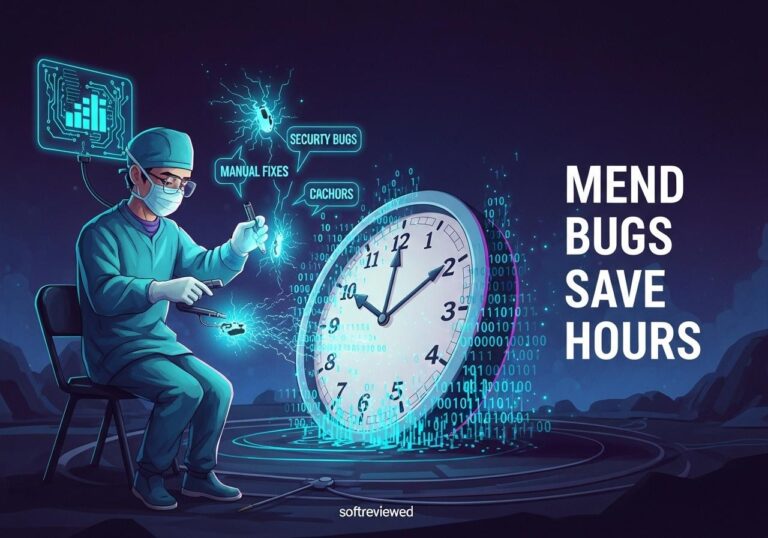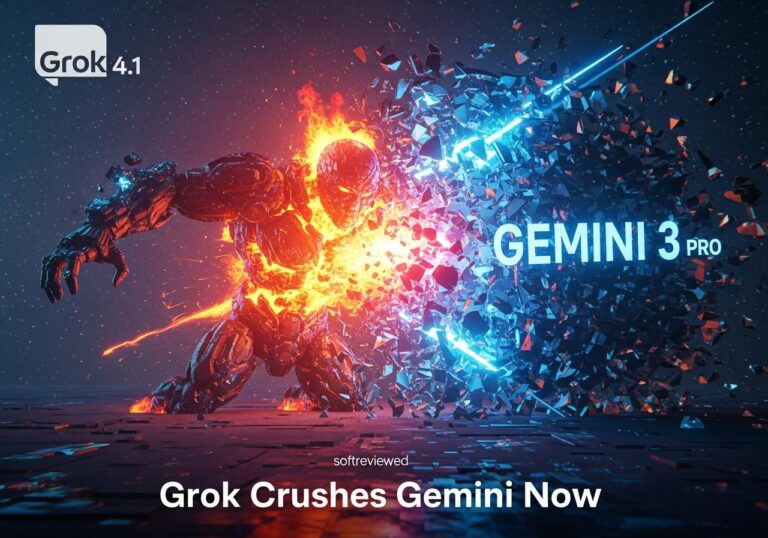CodeMender: AI-Powered Security Patching
Automatically detect, patch, and rewrite vulnerable code with advanced AI technology
Automated AI-Powered Security Patching
CodeMender automatically detects, patches, and rewrites vulnerable code without manual intervention, using Google’s Gemini Deep Think models to intelligently analyze and fix security vulnerabilities.
72 Security Fixes Delivered in 6 Months
The AI agent has already contributed 72 security fixes to open source projects during its development period, demonstrating its effectiveness in real-world applications.
Handles Massive Codebases
CodeMender can work on projects as large as 4.5 million lines of code, demonstrating scalability for enterprise-level applications and complex software systems.
Frees Developers for Innovation
By automating the patch process, CodeMender allows developers to focus on building new features instead of chasing down security bugs, increasing productivity and creative output.
Dual-Mode Protection
The system operates both reactively (fixing newly discovered vulnerabilities instantly) and proactively (rewriting existing code to eliminate entire classes of security flaws).
Multi-Layered Validation System
CodeMender includes comprehensive validation processes using static analysis, dynamic analysis, fuzzing, and differential testing to ensure patches don’t introduce regressions.
What Google's CodeMender Actually Does (And Why You Should Care)
Imagine having a security expert who never sleeps, never gets tired, and can fix code vulnerabilities faster than most humans can even find them. That's essentially what Google DeepMind just unleashed with CodeMender—an AI agent that doesn't just hunt for security bugs but actually writes the fixes and tests them automatically.
Released on October 6, 2025, CodeMender represents a major shift from traditional security tools that simply point out problems and leave developers to figure out solutions. This AI agent powered by Google's Gemini Deep Think models takes complete ownership of the entire vulnerability lifecycle—from detection to validated patch submission.
The AI That Actually Ships Code Fixes
Most AI coding tools help you write new code, but CodeMender specializes in making existing code safer. In just six months of testing, it has already submitted 72 verified security fixes to open-source projects, including massive codebases with over 4.5 million lines of code.
Here's what makes it different from your typical static analysis tool:
📌 Root Cause Detective: Instead of just flagging surface-level symptoms, CodeMender uses debugging tools and code analysis to understand the fundamental cause of security flaws
📌 Patch Synthesis: Generates actual code fixes that address the root problem, not just band-aid solutions
📌 Self-Validation: Tests its own patches using static analysis, fuzzing, differential testing, and existing test suites before submission
📌 Style-Aware: Ensures patches follow the project's coding conventions and don't break existing functionality
Two-Mode Security Approach: Reactive Plus Proactive

CodeMender operates in two distinct modes that address different security scenarios:
Reactive Mode instantly patches newly discovered vulnerabilities as they appear. Think of it as a rapid-response security team that can deploy fixes within hours instead of weeks.
Proactive Mode goes deeper by rewriting existing code to eliminate entire classes of security vulnerabilities before they can be exploited. For example, it added bounds-checking annotations to the libwebp image compression library—the same library exploited in a 2023 iOS attack—making similar buffer overflow attacks impossible.
The Technical Magic Behind CodeMender
Under the hood, CodeMender combines several sophisticated technologies:
Advanced Program Analysis: Uses static analysis, dynamic testing, fuzzing, and symbolic execution to understand code behavior and identify weaknesses
Multi-Agent Architecture: Employs specialized AI agents that critique and validate each other's work, similar to having multiple security experts review the same code
Gemini Deep Think Integration: Leverages Google's most advanced reasoning models to understand complex code relationships and architectural patterns
Validation Pipeline: Every patch goes through rigorous testing including unit tests, integration tests, security scans, and differential behavior analysis
Real-World Impact Stories
CodeMender has already proven its worth with concrete results:
✅ Complex Bug Resolution: Solved a heap buffer overflow issue where the root cause wasn't obvious—the actual problem was incorrect stack management of XML elements during file parsing, located elsewhere in the codebase
✅ Non-Trivial Fixes: Successfully patched complex object lifetime issues by modifying custom code generation systems within target projects
✅ Large-Scale Deployment: Applied fixes across codebases ranging from small utilities to enterprise-level projects with millions of lines
What This Means for Different Types of Developers
Open-Source Maintainers: CodeMender could dramatically reduce the security maintenance burden, especially for projects with limited resources and large backlogs
Enterprise Development Teams: Faster vulnerability remediation means shorter exposure windows and reduced security risk
Individual Developers: Less time spent chasing obscure security bugs means more time building features and improving user experience
Security Teams: CodeMender acts as a force multiplier, handling routine patching while humans focus on strategic security architecture
Current Limitations and Availability
CodeMender is still in research phase—every patch currently requires human review before being merged into projects. Google DeepMind plans to release detailed technical papers and expand collaboration with open-source maintainers in the coming months.
Pricing and Access: No public availability or pricing has been announced yet. The tool is currently being tested internally and with select open-source projects.
Language Support: While Google hasn't specified exact language support, the successful patches across 4.5 million lines of diverse open-source code suggest compatibility with major programming languages including C, C++, Java, Python, and JavaScript.
Comparison with Existing Tools
Traditional security tools create a workflow like this: Scan → Find Bug → Alert Human → Human Writes Fix → Human Tests Fix → Deploy
CodeMender transforms this into: Scan → Find Bug → AI Writes Fix → AI Tests Fix → Human Reviews → Deploy
This represents a fundamental shift from detection-only tools to complete remediation automation, potentially reducing time-to-patch from weeks to hours.
The Bigger Picture: AI-Powered Security Defense
CodeMender fits into Google's broader "AI for Defense" strategy, joining other tools like Big Sleep (vulnerability discovery) and OSS-Fuzz (automated testing). The company argues that as AI becomes better at finding vulnerabilities, human developers will struggle to keep up with patching—making automated remediation essential.
This creates an interesting dynamic: AI finding bugs faster than humans can fix them, solved by AI that fixes bugs faster than humans can write them.
What to Expect Next
Google DeepMind has indicated several upcoming developments:
➡️ Technical Papers: Detailed research publications explaining CodeMender's architecture and validation methods
➡️ Expanded Collaboration: Broader partnerships with open-source maintainers and projects
➡️ Developer Tools Integration: Potential integration with popular development environments and CI/CD pipelines
➡️ Enterprise Solutions: Commercial offerings for organizations wanting automated security patching
Why This Matters for Your Development Workflow
CodeMender represents the evolution from AI as a coding assistant to AI as an autonomous security engineer. Instead of helping you write code, it helps secure the code you've already written—and the code you depend on from others.
For content creators and developers in the AI space, CodeMender demonstrates how specialized AI agents are moving beyond general-purpose assistance toward domain-specific expertise. It's not trying to be everything to everyone; instead, it excels at one critical task: making code more secure.
The tool also highlights an important trend in AI development: the shift from human-supervised AI to AI that can complete entire workflows autonomously while still maintaining human oversight for critical decisions. This balance between automation and control could become the standard for AI tools in sensitive domains like security.
As AI continues to reshape software development, tools like CodeMender suggest we're moving toward a future where AI agents handle routine but critical tasks, freeing human developers to focus on innovation, architecture, and strategic thinking. The question isn't whether AI will transform how we secure software—it's how quickly we can adapt our workflows to take advantage of these new capabilities.







